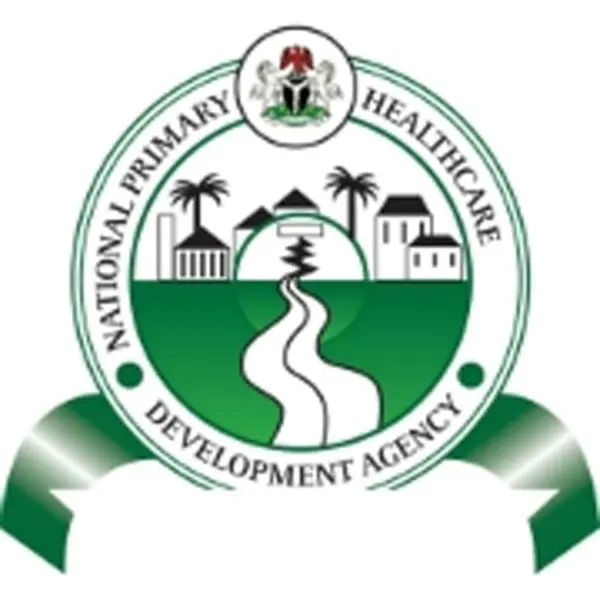
The National Primary Health Care Development Agency (NPHCDA) has revealed that a total of 7,250 health facilities across the 35 states and the FCT have been cleared to receive the decentralised facility funding (DFF) as part of the Basic Health Care Provision Fund (BHCPF) Gateway since 2019.
The director, primary health care systems, NPHCDA, Dr. Nneka Onu, disclosed this at the State of Primary Healthcare (PHC) Service Delivery in Nigeria report launch today in Abuja.
Recall that the 2019-2021 report was organised by ONE Campaign, National Advocates for Health, Nigeria Health Watch, the Public and Private Development Centre (PPDC) and partners.
The report tracked the health progress across the 36 states and the FCT, especially in the implementation of the
BHCPF has put forward some critical recommendations that can lead to improvement in health outcomes for all Nigerians.
Onu said that the NPHCDA gateway was not without its challenges.
“There is a major gap in identifying the stipulated one primary health centre per ward. This is because some states do not have a physical primary health centre per ward and are yet to submit a complete list of PHCs for the BHCPF.
“However, despite this and other challenges, we have recorded some successes; some of which are the development of BHCPF guidelines, the NPHCDA Gateway handbook and tools, publishing the report on funds disbursed to states and health facilities, baseline assessment of health facilities completed across all 36 states and the FCT, capacity-building of health workers and WDC across 35 (except Rivers) states and FCT, verification exercise in all 35 states and the FCT to confirm the readiness of health facilities to receive the fund, ongoing re-verification in16 states that have up to 30 per cent of their facilities unauthorised, deployment of technical assistance to all states.
“This is to ensure the utilisation of funds done nationwide, supervision and monitoring of DFF verification, financial tracking and intensified M&E ongoing, quarterly quality assessment at health facilities in all states and the FCT ongoing, plan to conduct quarterly quality counter verification in selected state based on high and low performing states on quality delivery services at the primary health care facilities, plan to migrate all BHCPF NPHCDA Gateway processes to online ongoing,” she explained.
The director, PHC, said the agency leveraged information and communications technology to track the status of fund disbursement and overall fund management.
“Also, we have a clear procedure and published guidelines for managing fraud to ensure that these funds are used as intended,” she said.
She, however, described the report as a step in the right direction.
“You will agree that tracking and monitoring progress and proposing ways to improve is expedient for our health systems,” she stressed.
The member, supervisory board, Coronams, in his presentation on the methodology of commissioned ranking of health delivery by the 36 states and the FCT, Dr. Chijioke Kaduru, said the money would help the Nigerians buy the health that they need.
Kaduru said that they would not ignore funds from the state level because they were critical to healthcare delivery and it was increasingly important to look at the release of funds and utilisation at the subnational level.
“The minimum health-care packages are intended to serve as the foundation for all states in providing health-care services.
“As a result, the diverse range of stakeholders involved in health must continue to collaborate to provide quality care to their people,” he explained.
A public health practitioner and a nutritionist, Dr. Phyilis Ogah, said that leadership issues are one of the challenges with the disbursement of the BHCPF in the country.
Ogah said that the good thing was that if these funds were released when approved, Nigerians would have seen a huge improvement.
She stressed that more engagement with the state and evidence tracker is what all actors should keep pushing for going forward.
The Enugu State Commissioner for Health, Dr. Emmanuel Ikechukwu Obi, said that the success in the state was attributed to the enabling environment by the leadership in the state.
Obi advised that there must be a bridge to understanding the technicalities of health that allows the political class to easily support health care delivery.
“The use of the gateway forum brings together the stakeholders to agree on a common goal that has the people in mind in health care delivery.
“Disseminating the report is one key way to increase discussions about the issues on BHCPF implementation in Nigeria,” he said.
In her remarks, the managing director, Nigeria Health Watch (NHW), Mrs. Vivianne Ihekweazu, said no one should underestimate the voice of the community.
“We must never underestimate the voices of the communities. This is why we are allowing community members to share their experiences in accessing health care through our community health watch project in Kano and Niger states,” Ihekweazu said.
Similarly, the country director, One Nigeria, Mr. Stan Achonu, said that one of the key points raised at the event was the need for more collaboration to ensure the vulnerable population’s inclusion in the country.
Achonu said that as stakeholders, they must agree that providing high-quality healthcare to all Nigerians is their primary goal.

